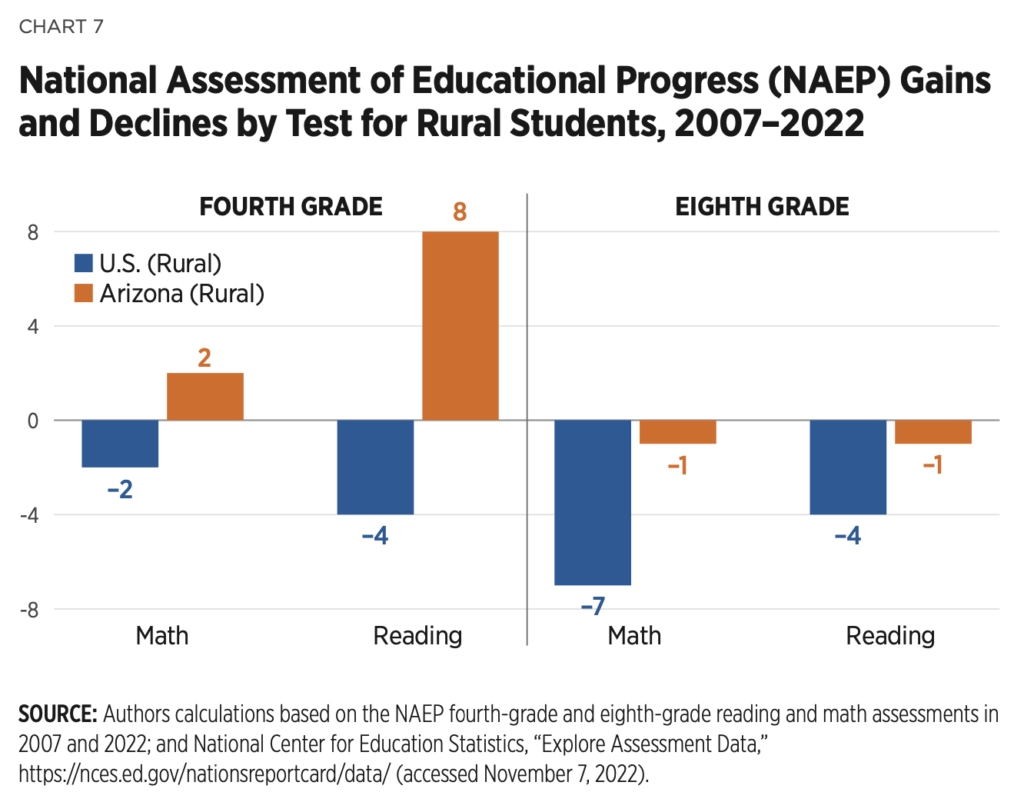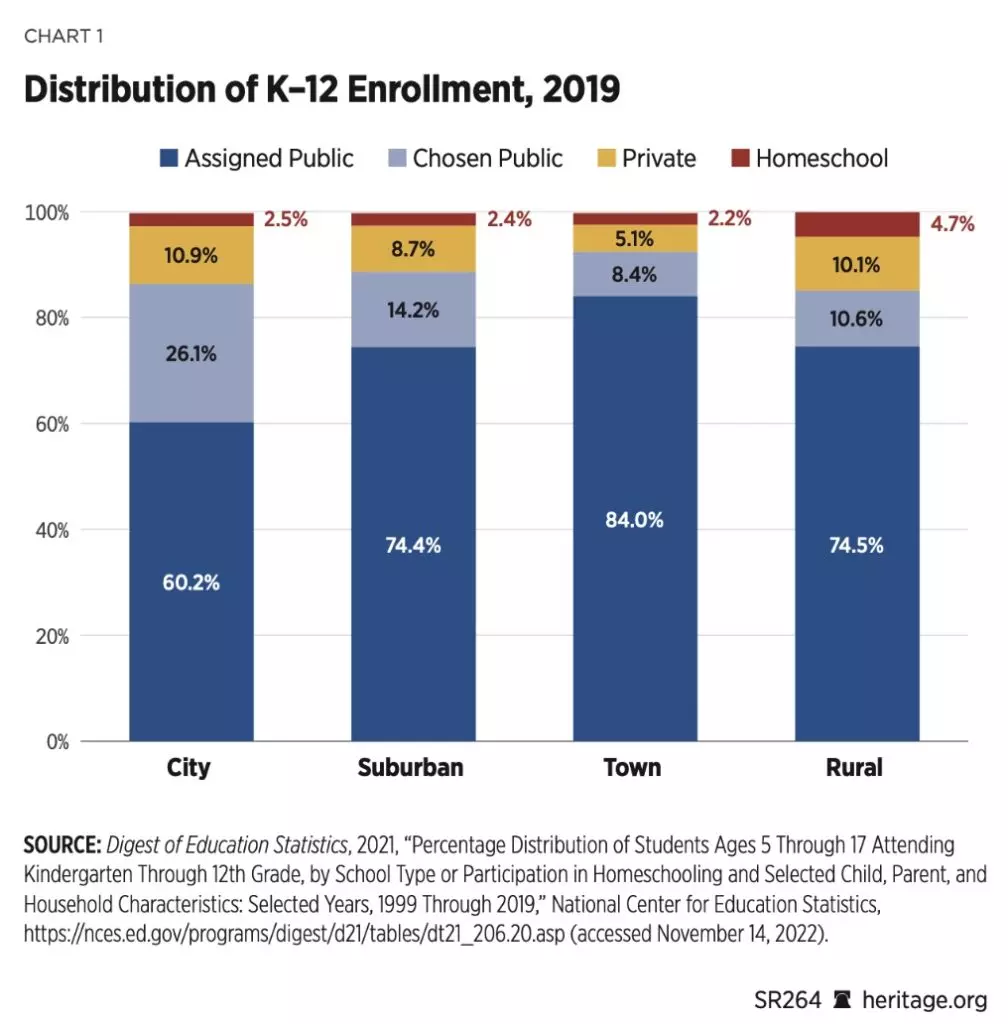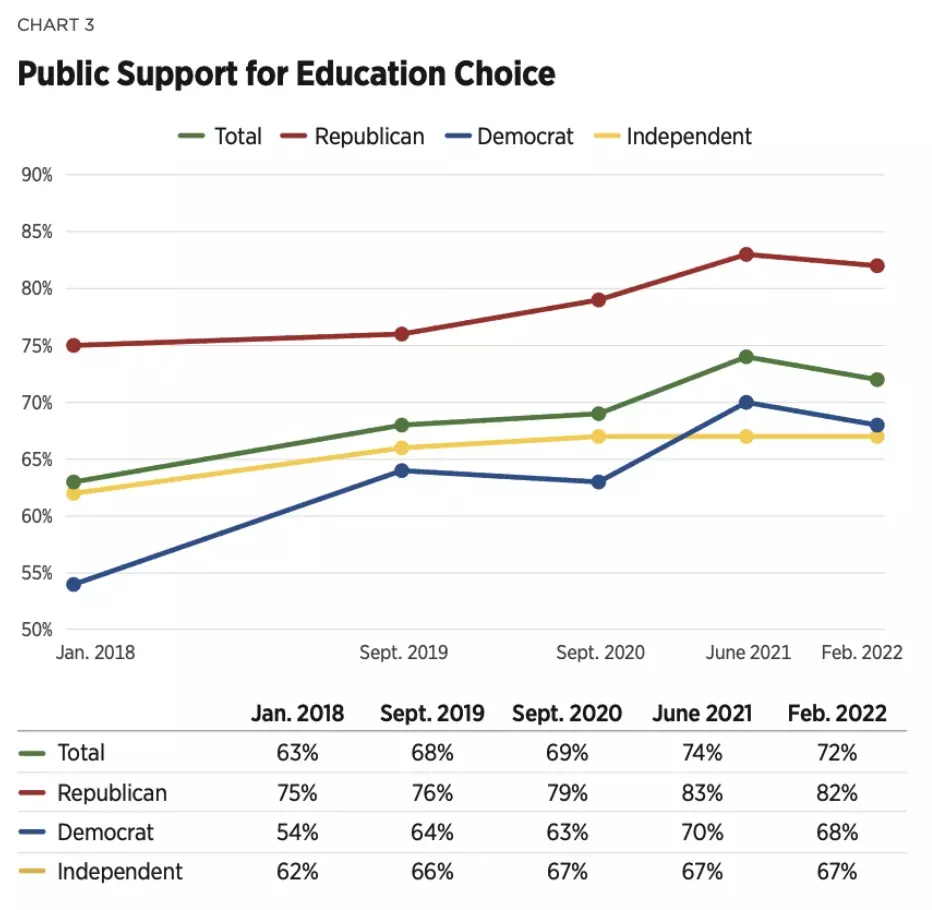Jillian Schneider | January 18, 2023
(The Lion) — Critics say school choice policies harm rural communities. They couldn’t be more wrong.
School choice policies help families take advantage of educational alternatives in their community while simultaneously benefiting local public schools, the Heritage Foundation reports in “Rustic Renaissance: Education Choice in Rural America” by Jason Bedrick and Matthew Ladner.
For example, Hope Rural School, a Catholic PreK-5 in Indiantown, Florida, serves 135 students, most of whom are children of agricultural workers and almost all of whom use school choice scholarships. Hope Rural also has a great relationship with the local school district.
“We don’t compare ourselves. We work together,” said Sister Elizabeth Dunn, the school’s director. “We value what each other is doing.”
In Arizona, which has offered school choice programs for years, NAEP test scores provided “strong evidence against the hypothesis that education choice causes harm,” the report says.

After all, rural Arizona schools scored significantly better in every category than rural schools nationwide.
“The best available evidence suggests that choice and competition are the rising tide that lifts all boats, including in rural areas,” write the authors.
State Florida Rep. Kaylee Tuck also defended the necessity of school choice for rural communities.
“I’m a state lawmaker who represents one of the most rural areas in Florida,” she wrote. “School choice helped elevate Florida from being one of the worst education states in America to No. 3 in K-12 achievement.”
Since Florida enacted its tax-credit scholarship policy in 2001, nearly 50 private schools have been added in the state’s 30 rural counties. In the same period, private school enrollment in those counties doubled – from 5,354 to 10,965.
During the 2021-2022 school year, nearly 180,000 Florida students used some form of school choice. Across the board, rural students are already just as likely to attend a private school and more likely to homeschool than their city or suburban counterparts.

“The people in my district are resourceful and hard-working, the kind who make rural communities the backbone of America,” Tuck says. “They value school choice.”
They aren’t the only ones.
Texans also showed strong support for school choice, with 88% of voters agreeing funding should be tied to the student, not school.
Nationwide, support for school choice has grown, transcending the political divide.

The study concludes with two recommendations for expanding educational opportunities: enact universal K-12 ESA’s and expand charter school policies.
“By embracing education choice policies, state lawmakers can deliver on the promise of America’s education system and ensure that all children have access to the learning environment that best meets their individual needs and helps them to achieve their full potential,” the report concludes.
Students of rural communities deserve the same opportunities as everyone else. And school choice can give it to them.
